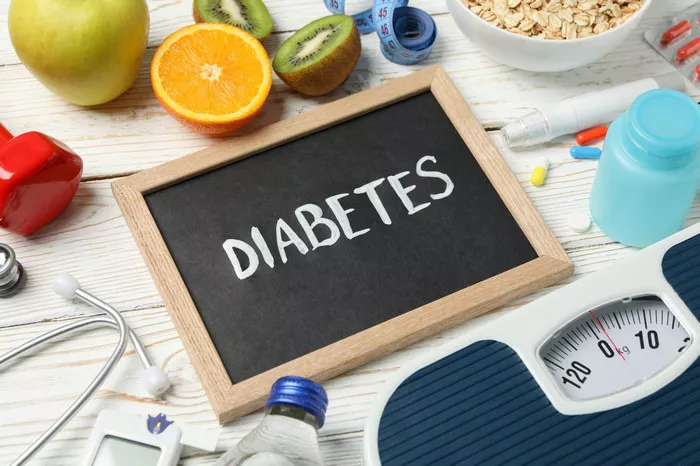Monitoring blood sugar levels is a fundamental aspect of managing diabetes. One of the most critical times to measure blood sugar is in the morning, often referred to as fasting blood sugar (FBS) or fasting glucose. This measurement provides valuable insights into how well your body manages blood sugar overnight and helps guide treatment decisions. In this article, we will explore what constitutes a good blood sugar number in the morning, why it matters, and how you can achieve and maintain healthy fasting blood sugar levels.
Understanding Fasting Blood Sugar
Definition and Importance of Fasting Blood Sugar
Fasting blood sugar refers to the level of glucose in your blood after you have fasted for at least 8 hours. It is typically measured in the morning before eating or drinking anything other than water. This reading is crucial because it reflects your body’s baseline blood sugar level without the influence of recent meals.
Fasting blood sugar is an important marker for diagnosing and monitoring diabetes. It can indicate how effectively your body regulates blood glucose levels during periods of fasting, providing a snapshot of your overall glycemic control.
How Fasting Blood Sugar Is Measured
Fasting blood sugar is typically measured using a glucometer, a small handheld device that reads glucose levels from a drop of blood. Here’s how it’s done:
Prepare the Glucometer: Insert a test strip into the glucometer.
Clean the Test Site: Clean the side of your fingertip with an alcohol swab to prevent infection.
Lance Your Finger: Use a lancet to prick the side of your fingertip to obtain a drop of blood.
Apply Blood to the Test Strip: Place the drop of blood on the test strip.
Read the Result: The glucometer will display your blood sugar level within a few seconds.
This process is simple and can be done at home, making it a convenient way to monitor your blood sugar levels regularly.
What Is Considered a Good Blood Sugar Number in the Morning?
Target Fasting Blood Sugar Levels
The ideal fasting blood sugar level can vary depending on several factors, including whether you have diabetes, prediabetes, or normal glucose metabolism. Generally, the following ranges are used as guidelines:
Normal Fasting Blood Sugar: 70–99 mg/dL (3.9–5.5 mmol/L)
Prediabetes: 100–125 mg/dL (5.6–6.9 mmol/L)
Diabetes: 126 mg/dL (7.0 mmol/L) or higher
For individuals with diabetes, a good fasting blood sugar level is typically within the range of 80–130 mg/dL (4.4–7.2 mmol/L). However, the target range can vary based on individual health conditions, age, and treatment goals. It is essential to work with your healthcare provider to determine the optimal target range for you.
Factors Influencing Morning Blood Sugar Levels
Several factors can affect your blood sugar levels in the morning, including:
Dawn Phenomenon: The dawn phenomenon refers to an early morning rise in blood sugar levels due to the release of hormones like cortisol and growth hormone. These hormones trigger the liver to release glucose into the bloodstream, leading to higher fasting blood sugar levels.
Somogyi Effect: Also known as rebound hyperglycemia, the Somogyi effect occurs when blood sugar levels drop too low during the night, prompting the body to release counter-regulatory hormones that raise blood sugar levels in the morning.
Medication: The type, timing, and dosage of diabetes medications can significantly impact fasting blood sugar levels. Insulin or other glucose-lowering medications taken in the evening may need to be adjusted based on morning readings.
Diet and Exercise: What you eat and how active you are during the day can influence your morning blood sugar levels. For example, consuming a large, high-carbohydrate meal late at night can lead to higher fasting blood sugar levels the next morning.
Sleep Quality: Poor sleep or sleep disorders, such as sleep apnea, can affect blood sugar regulation and lead to higher fasting glucose levels.
Why Morning Blood Sugar Matters
Role in Diabetes Management
Fasting blood sugar is a critical parameter in diabetes management because it provides insight into your body’s ability to regulate blood sugar overnight. High fasting blood sugar levels may indicate that your diabetes is not well-controlled, which can increase the risk of complications such as cardiovascular disease, kidney damage, and neuropathy.
Consistently high morning blood sugar levels may require adjustments in your diabetes management plan, including changes to medication, diet, or lifestyle.
Predictive Value for Long-Term Health
Fasting blood sugar is also a strong predictor of long-term health outcomes. Studies have shown that elevated fasting glucose levels are associated with an increased risk of developing type 2 diabetes and cardiovascular disease, even in individuals without diabetes. Therefore, maintaining a healthy fasting blood sugar level is crucial for long-term health and reducing the risk of complications.
How to Achieve and Maintain Good Fasting Blood Sugar Levels
Dietary Strategies
Balanced Diet: A balanced diet that includes a mix of carbohydrates, proteins, and healthy fats can help stabilize blood sugar levels. Focus on whole grains, lean proteins, and plenty of vegetables while limiting processed foods and refined sugars.
Portion Control: Eating smaller, more frequent meals throughout the day can prevent blood sugar spikes and dips, leading to more stable fasting blood sugar levels.
Low-Glycemic Foods: Incorporate low-glycemic foods into your diet, such as legumes, nuts, seeds, and non-starchy vegetables, which have a slower impact on blood sugar levels.
Evening Meals: Be mindful of what you eat in the evening. Avoid heavy, high-carbohydrate meals close to bedtime, as they can cause elevated fasting blood sugar levels in the morning.
Exercise and Physical Activity
Regular Exercise: Engaging in regular physical activity can improve insulin sensitivity and help lower fasting blood sugar levels. Aim for at least 150 minutes of moderate-intensity exercise per week, such as brisk walking, swimming, or cycling.
Evening Activity: Light exercise in the evening, such as a walk after dinner, can help regulate blood sugar levels overnight and lead to better morning readings.
Medication Management
Insulin Therapy: If you are on insulin therapy, your healthcare provider may adjust your dosage or timing based on your morning blood sugar readings. Long-acting insulins are often used to help control fasting blood sugar levels.
Oral Medications: Certain oral medications, such as metformin, can help reduce fasting blood sugar levels by improving insulin sensitivity and reducing glucose production by the liver.
Monitoring and Adjustment: Regularly monitor your fasting blood sugar levels and work with your healthcare provider to adjust your medication regimen as needed to achieve your target range.
Lifestyle Modifications
Sleep Hygiene: Prioritize good sleep hygiene by maintaining a consistent sleep schedule, creating a relaxing bedtime routine, and ensuring your sleep environment is conducive to restful sleep. Good sleep can have a positive impact on fasting blood sugar levels.
Stress Management: Chronic stress can lead to elevated blood sugar levels due to the release of stress hormones like cortisol. Practice stress management techniques such as deep breathing, meditation, or yoga to help keep your blood sugar levels in check.
Hydration: Staying well-hydrated is important for blood sugar control. Drink plenty of water throughout the day, as dehydration can lead to higher blood sugar levels.
Monitoring and Adjusting Your Routine
Regular Blood Sugar Testing
To effectively manage your fasting blood sugar levels, it is essential to monitor your blood sugar regularly. Your healthcare provider may recommend testing your blood sugar at different times throughout the day, including in the morning, before meals, and after meals. Keeping a log of your readings can help you and your healthcare provider identify patterns and make necessary adjustments to your treatment plan.
Continuous Glucose Monitoring (CGM)
For individuals who require more detailed monitoring, continuous glucose monitoring (CGM) systems can provide real-time data on blood sugar levels throughout the day and night. CGM devices track glucose levels continuously, offering insights into how your blood sugar fluctuates and how it responds to various factors such as food, exercise, and medication.
Adjusting Your Routine
If you notice that your morning blood sugar levels are consistently outside your target range, it may be time to adjust your routine. This could involve:
Reevaluating Your Diet: Consider making changes to your evening meals, such as reducing carbohydrate intake or eating earlier in the evening.
Changing Medication: Work with your healthcare provider to adjust your medication regimen, including the type, dosage, and timing of insulin or oral medications.
Incorporating Physical Activity: Adding light exercise in the evening or increasing overall physical activity can help improve fasting blood sugar levels.
Improving Sleep Habits: Address any sleep issues, such as insomnia or sleep apnea, that may be contributing to elevated fasting blood sugar levels.
See also: Are Ketone Meters the Same as Glucose Meters?
Conclusion: Maintaining Healthy Fasting Blood Sugar Levels
In conclusion, a good blood sugar number in the morning is a critical indicator of overall diabetes management. For most individuals with diabetes, a target fasting blood sugar level of 80–130 mg/dL (4.4–7.2 mmol/L) is considered ideal. Achieving and maintaining this range involves a combination of dietary strategies, regular exercise, medication management, and lifestyle modifications.
By regularly monitoring your blood sugar levels and making necessary adjustments to your routine, you can achieve better control over your diabetes and reduce the risk of complications. As always, it is important to work closely with your healthcare provider to tailor your diabetes management plan to your specific needs and goals.
Related topics:
Why It Is Important to Wipe Away the First Drop of Blood


























